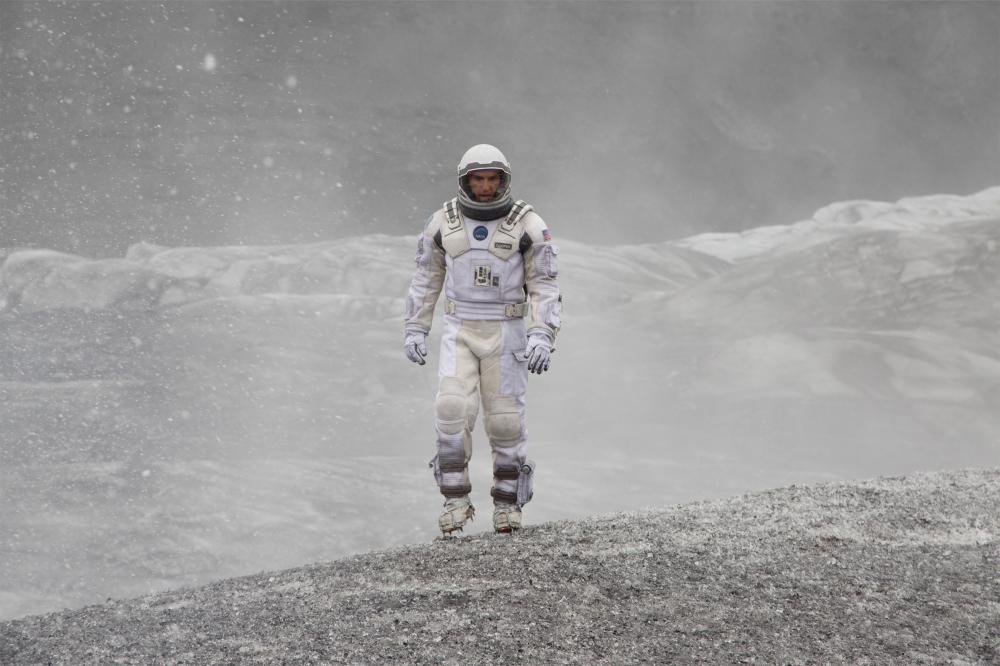
If Interstellar’s ending didn’t quite sit right with you, co-writer Jonathan Nolan may be able to help. As he recently revealed, the film’s original conclusion would have been much simpler—albeit way more depressing as well.
Nolan detailed the screenplay’s first ending at an event ahead of the film’s Blu-ray release in Pasadena, California, alongside scientist Kip Thorne, who served as a producer and science adviser for the film. As Nerdist reports, Nolan told a crowd at the Caltech Jet Propulsion Lab that he originally planned a much different conclusion for Matthew McConaughey’s Cooper.
In the final film, Cooper travels through the black hole Gargantua, surviving the trip and ending up in a “tesseract” space where he’s able to see—and in some bizarre ways, interact with—his past. This revelation allows him to send a Morse code message to his daughter Murph, which sets the film’s final events into motion.
Nolan’s early take on the ending, however, essentially cuts Cooper off inside the black hole. His script “had the Einstien-Rosen bridge [wormhole] collapse when Cooper tries to send the data back.”
The wormhole falling apart would have prevented Cooper from returning home or interacting with the tesseract, which, according to Nerdist, was director Christopher Nolan’s idea. Instead, his journey would have ended there, with Cooper sacrificing himself in the name of his cause. This also would have prevented much of the finished film’s concluding events—Cooper’s return trip, rediscovering his daughter, and stealing a ship to search for Anne Hathaway’s Amelia Brand would never have happened. Nolan does not mention, however, whether in that original ending, the data Cooper is collecting to send back to Earth would have made it out before the collapse.
Instead of this bleak finish, Interstellar ends on a much more hopeful note—even if many have taken issue with how Nolan sacrifices scientific accuracy for a more emotional conclusion.
Nerdist has the full report of Nolan and Thorne’s talk, including discussion of some other changes from Jonathon’s original drafts to the version his brother Christopher used in the final film.
This article originally appeared on EW.com.
More Must-Reads From TIME
- The 100 Most Influential People of 2024
- Coco Gauff Is Playing for Herself Now
- Scenes From Pro-Palestinian Encampments Across U.S. Universities
- 6 Compliments That Land Every Time
- If You're Dating Right Now , You're Brave: Column
- The AI That Could Heal a Divided Internet
- Fallout Is a Brilliant Model for the Future of Video Game Adaptations
- Want Weekly Recs on What to Watch, Read, and More? Sign Up for Worth Your Time
Contact us at letters@time.com